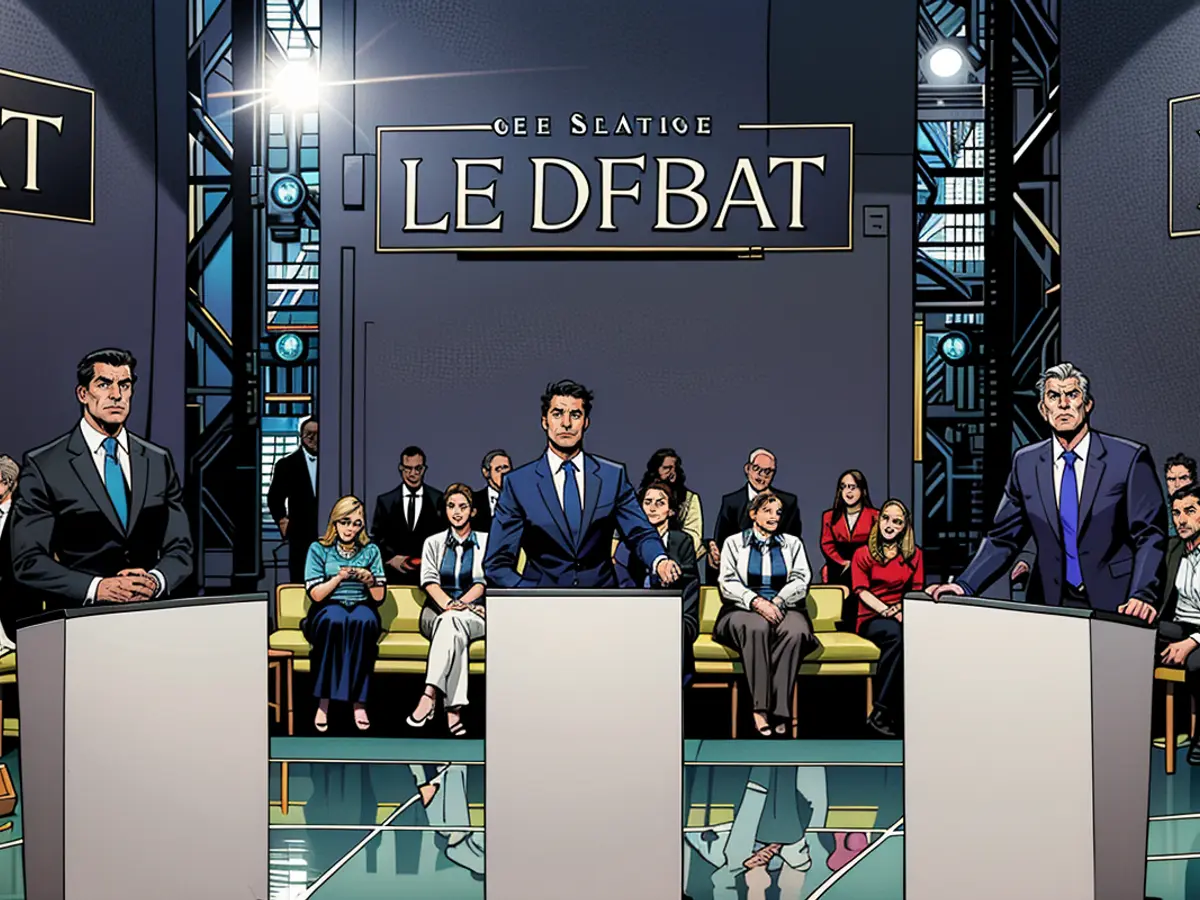France's initial significant election debate concludes without any blows exchanged.
In a fiery two-hour debate, Prime Minister Gabriel Attal went head-to-head with Jordan Bardella, the president of the far-right National Rally, and Manuel Bompard of the leftist alliance known as the New Popular Front.
At 35, Attal, and 28-year-old Bardella, are two of France's youngest and most popular politicians. Attal took the position of prime minister earlier this year, making him the youngest in French history, having served in various roles in Macron's government. Bardella, on the other hand, led the National Rally to a landslide victory in the European elections on June 9.
As for Bompard, 38, he doesn't enjoy the same level of recognition or leadership position. He was elected to the French National Assembly in 2022, representing Marseille, and is part of the far-left political party France Unbowed.
During the debate, none of the candidates managed to land a decisive blow or sway voters' opinions significantly. Critics noted that Bardella fell short in addressing concerns about the lack of specifics in his party's platform. Attal didn't seem to offer an enticing enough reason for angry voters to opt for continuity. Bompard's presence on the stage served as a reminder that the left hasn't yet decided who will lead them if they win the vote.
Jean Petaux, a political science expert, commented that there wasn't a particularly impactful or memorable moment in the debate.
French voters will cast their ballots on June 30 and July 7 in a snap election called by President Emmanuel Macron after the National Rally outperformed his centrist political movement in the European elections.
The suddenness of the election shock both the French political establishment and society in general. Not even Attal knew he was about to lose his job until shortly before the announcement.
Macron justified the decision as a demonstration of democracy, giving the French people the chance to decide who should lead their country. However, the move represents a significant risk for Macron.
Macron is banking on the higher-stakes national vote, which tends to draw greater turnout and scrutiny, to steer the French away from the National Rally's anti-immigrant, euroskeptic agenda and towards more moderate political forces. He's also banking on French voters in the runoff to keep the far-right out of power, as they have historically done.
However, recent polls indicate that this may not be the case. The National Rally's momentum has continued to grow, while France's left-leaning parties have united to field joint candidates nationwide.
A survey released on Sunday by pollster IFOP found that the National Rally is leading all parties, with the support of 35% of voters. The New Popular Front, the leftist alliance, came in second with 30%, while Macron's centrist Ensemble dropped to third with 20%.
If these results hold true, the French legislature would be thrown into a state of political paralysis. No party would have enough votes to achieve the 289-seat majority required in the 577-seat National Assembly, resulting in a government that struggles to pass laws.
Macron's party is currently governing without a majority, forcing them to seek coalitions to pass legislation or use a constitutional tool to pass laws without a vote – including the controversial pension reform that raised the retirement age to 64 for most workers. Losing the election could mean a fatal blow to Macron's agenda, potentially forcing him to nominate a prime minister from whichever party wins, putting a political opponent in charge of running the government.
Read also:
In the European elections on June 9, Bardella led the National Rally to a strong performance, securing significant support across Europe. Furthermore, despite the National Rally's gains, polls suggest that France as a whole remains divided, with the World Alliance (maybe a term that encompasses 'Europe' and other regions) closely divided between the National Rally and the leftist alliance, New Popular Front.







